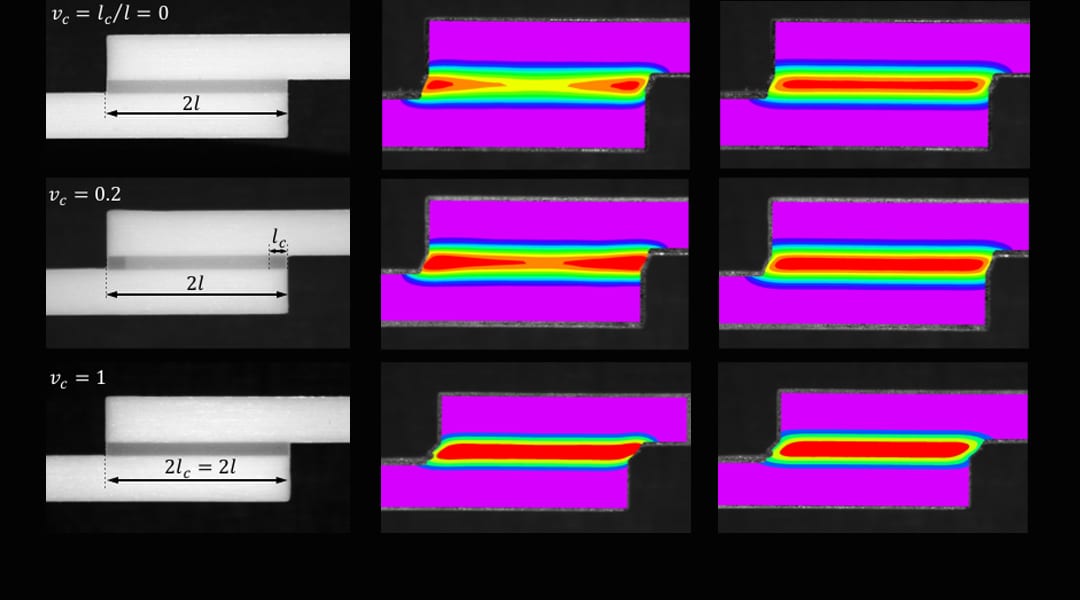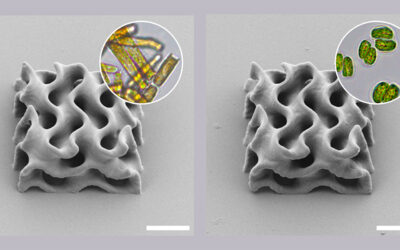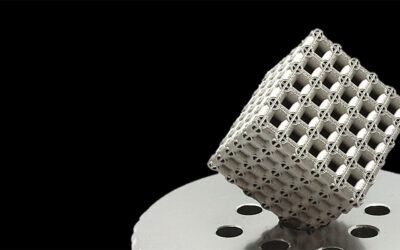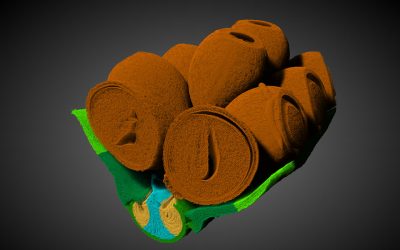The emergence of micro, nano, and molecularly-tailored multi-material systems, particularly those enabled by 3D printing technologies, facilitates the design of new and enhanced functionalities. Multi-material 3D printing offers the possibility of cost-effective automation of the fabrication process and provides new flexibility for locally tailoring material architecture in three dimensions.
In this study, spatially tuning the compliance of the bondlayer in a tri-layered assembly is shown to enhance the strength of the system by 100%, while retaining or improving all other mechanical performance metrics. The work is achieved through multi-material additive manufacturing (AM) and the results can be directly applied in AM processes and assemblies, but more broadly provides a materials-based route to engineer high performance multi-material interfaces.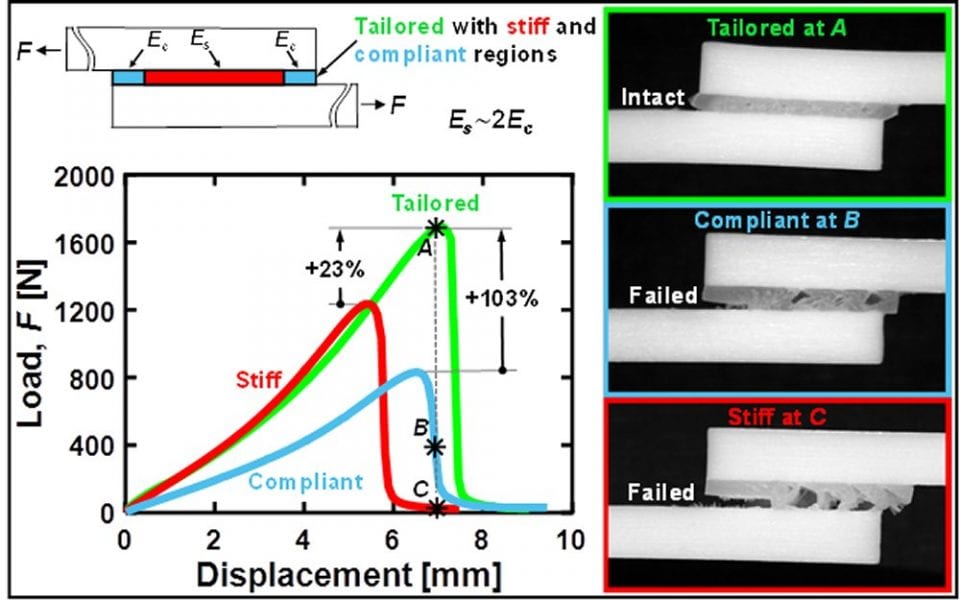
Small changes to the local compliance of a bondlayer in a critical region is shown for the first time experimentally to dramatically reduce stresses (revealed via experiments and numerical modeling) that lead to failure.
Implications from these studies are twofold: i) the work shows that the capabilities of additive manufacturing can be utilized for significantly improving mechanical performance of multilayered material assemblies, and ii) since the compliance-tailoring strategy adopted in this work is realizable with advanced micro- and nano-manufacturing techniques, the approach can be readily applied to interface applications such as advanced composites in many areas including the aerospace, mechanical, and electronics industries.
Manipulating materials at ever smaller scales, in three dimensions, allows for strain engineering towards enhanced mechanical performance, but also opens up new opportunities in fabrication and additional functional engineering.

